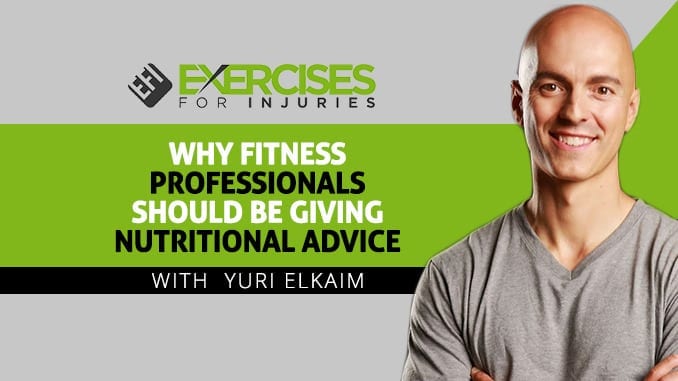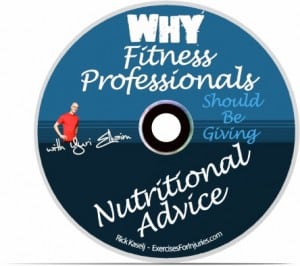
As a fitness professional, you guide people toward a healthier lifestyle. This means teaching them away from high-calorie processed foods and toward nutrient-packed fresh fruits and vegetables. Your job is to encourage people to make healthy choices, not become their dietitians. To do this without compromising your values or ethics as a fitness professional, you should avoid giving people specific advice on what they should eat. Instead, it would help if you focused on why they should eat certain things to foster lasting behavior change. The reasons you give for why someone should follow a particular diet are more important than the specific diet itself. Here’s why you need to start giving nutritional advice instead of meal plans if you want to impact your clients’ long-term health habits positively.
1. Show clients why they should care about nutrition
Before you help your clients make specific changes to their diet, you have to make them care about nutrition. This might sound like a lofty goal, but it’s doable if you start with some basic questions. Your goal is to help clients figure out how following a healthy diet will help them live their best lives. Start by asking clients what their long-term health goals are. Is their plan to lose weight? Reduce their risk of certain diseases like heart disease and type 2 diabetes? Is their goal to fit into an outfit they’ve had in their closet for years but never worn because they don’t feel comfortable in it? Once you understand what they’re hoping to achieve, you can help them make the connection between their long-term goals and their diet.
2. Help people develop realistic expectations about fitness and nutrition
You can help people develop realistic expectations about fitness and nutrition. This is especially important when it comes to weight loss. There are no quick fixes when it comes to weight loss. It would help if you had real and lasting lifestyle changes to drop pounds and keep them off for good. If you’re helping people lose weight, you mustn’t promise that they will see results overnight. Weight loss takes time, and it’s rare to see results in less than a month. If you promise quick results, you’re setting people up for failure, which can cause them to lose faith in your advice and stop caring about their health.
3. Fitness professionals can help people make healthy food choices
Once you’ve helped people connect the dots between a healthy diet and their goals, you can start helping them make specific changes to their diet. When assisting people in making changes to their diet, you don’t want to give them specifics. Instead, you want to help people make general changes they can incorporate into their diet. For example, don’t tell someone to cut out soda and replace it with water. Instead, encourage people to reduce the number of sugary drinks they drink. This action can be applied to any person’s eating habits.
Today, I have another interview for you, and we are continuing on the theme of nutritional advice.
I interviewed Yuri Elkaim.
You know, Yuri. You have seen him before on EFI. I interviewed Yuri while I was at a fitness conference in California. We did a quick interview on Pre-habilitation Concept.
Importance of Doing Prehabilitation Exercises
Yuri is a strength coach for the men’s soccer team at the University of Toronto and the creator of:
Yuri is a cool guy to hang out with and chat with. I have been lucky to speak with him in Orange County, Las Vegas, and San Diego.
Now to the interview that we just did on nutrition.
CLICK HERE to listen to the interview.
In the interview, Yuri Elkaim shares with you:
- The importance of understanding nutrition so you can educate and empower your clients with the correct information
- Things that the pharmaceutical industry has done to the medical community to increase drug use
- The supplement industry wants you to believe you need to eat supplements to build muscle, but what does the research say?
- Why training people are more accessible than giving nutrition advice
- How making minor changes to his athletes’ eating habits has helped them out
- Is it reasonable to eat six eggs a week?
- Educating your client about nutrition is essential so they can make better nutritional decisions.
- Why it is essential to balance what you experience with nutritional research
- He was training clients but was not helping them with nutritional advice since he was a poor example of food.
- He got an autoimmune disease, alopecia, and the medical community did not know what to do about it, but he found out what worked.
- How a broken leg changed his life
- Who is Yuri Elkaim?
Rick Kaselj, MS
A few things you need to know about listening to the interview:
- To listen to the interview, scroll to the bottom of this page and click the play button symbol. If you do not have time to listen to it, click the “download” button and download it to your computer. Then you can listen to it on your computer when you like. Plus, you can subscribe to the iTunes podcast and get all the interviews when they are ready. Enjoy!
- Playing the interview can be fun if you use Chrome as your web browser. I suggest listening to the discussion in another web browser (Firefox, Safari, Internet Explorer, etc.)
- Here is a video explaining how to download the interview recording
If you liked this interview and are looking for other fitness nutritional advice, check out these other articles, videos, and interviews:
- Training and Nutrition Advice with John Romaniello
- Intermittent Fasting Diet with Dan Go
- Nutrition Interrogation with Brian St. Pierre
Podcast: Play in new window | Download




